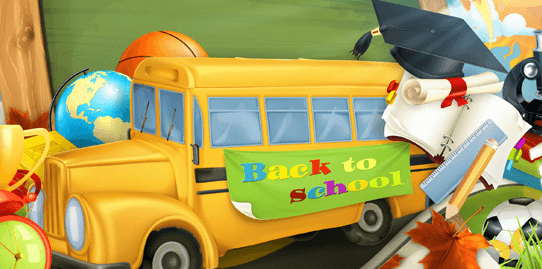clipart:_uexxcvpibu= school

Schools are fundamental institutions in our society, dedicated to educating and nurturing individuals. They are pivotal in shaping the future by providing knowledge, skills, and values. clipart:_uexxcvpibu= school offer a structured setting that supports both academic achievement and personal growth. Their impact extends beyond education, influencing social and developmental aspects of students’ lives.
Evolution of Education
Education has a rich history, evolving from early systems focused on basic skills to comprehensive modern curricula. Ancient education primarily aimed at literacy, while today’s systems include a wide range of subjects and teaching techniques. Significant developments include the creation of formal educational institutions and evolving pedagogical approaches. Understanding this progression highlights the complexity and growth of contemporary education.
Categories of Schools
There are several types of schools, each serving different educational needs. Public schools are funded by the government and are accessible to all students. Private schools offer specialized programs, while charter schools provide alternative teaching methods. Online schools present flexible learning options, each type catering to various student requirements and learning preferences.
Educational Curriculum
The curriculum in schools includes essential subjects like math, science, and language arts, along with optional courses such as art and music. Extracurricular activities like sports and clubs also play a crucial role in enhancing the educational experience. A balanced curriculum promotes intellectual curiosity and prepares students for future academic and career endeavors. It encourages critical thinking and personal development.
Role of School Administration
School administration is crucial for effective school management, involving principals, vice principals, and other key figures. They oversee curriculum development, staff management, and student support services. Efficient administration ensures a conducive learning environment and upholds educational standards. Administrators are essential in implementing policies and maintaining a positive school climate.
Importance of Teachers and Staff
Teachers and staff form the core of any educational institution, significantly impacting student outcomes. They bring expertise, enthusiasm, and dedication to teaching, guiding students throughout their academic journey. Their role extends beyond academics, influencing students’ values and life skills. Quality education relies heavily on their commitment and professionalism.

Classroom Dynamics
The classroom environment plays a crucial role in student engagement and learning. Well-organized spaces with access to modern technology enhance the educational experience. A supportive and inclusive classroom atmosphere encourages student participation and fosters a sense of belonging. Effective classroom management and resource utilization contribute to academic success.
Enriching Student Life
Student life includes daily routines, participation in extracurricular activities, and engagement in school events. These experiences promote teamwork, leadership, and personal growth. Involvement in clubs and sports enhances social skills and time management. A dynamic student life contributes to a well-rounded educational experience, making learning enjoyable and comprehensive.
Read Also clipart:8ph6q0ltrde= horse
Parental Engagement
Parental involvement is vital for student success, creating a supportive environment that complements school efforts. Parents can contribute by volunteering, attending school events, and aiding with homework. Active participation by parents boosts student motivation and academic performance. Strong parent-school partnerships enhance educational outcomes and student well-being.
Educational Challenges
Education systems face several challenges, including funding limitations, pressure from standardized testing, and issues of equity. These obstacles can affect the quality of education and resource availability. Addressing these challenges involves collaboration between educators, policymakers, and communities. Solutions focus on equitable funding and inclusive policies to improve educational experiences.
Advances in Education
Educational innovations include the integration of technology, novel teaching methods, and personalized learning approaches. These advancements cater to diverse learning needs and enhance student engagement. Technology enables interactive learning experiences, while new pedagogical methods promote critical thinking. Embracing these innovations prepares students for future demands and enhances educational effectiveness.
Ensuring School Safety
Maintaining school safety is essential, involving policies on bullying prevention, emergency responses, and overall student well-being. Schools implement various safety measures to create secure learning environments. Addressing safety concerns helps build trust among students, parents, and staff. Proactive safety strategies contribute to a supportive and secure educational setting.
Schools and Community Integration
Schools play a crucial role in community life by fostering partnerships and organizing events that encourage volunteerism. Community involvement enriches the educational experience, providing additional support and resources. Collaborative projects between schools and communities benefit both students and local residents. Strong connections between schools and communities enhance the overall educational environment.
Comparative Global Education
Exploring global education systems reveals diverse teaching methods, curricula, and assessment approaches. These differences reflect various cultural values and educational objectives. Understanding international educational practices highlights successful strategies and areas needing improvement. Global comparisons facilitate discussions on educational reforms and innovations, aiming to enhance learning experiences worldwide.
FAQs about Schools
What are the benefits of different types of schools? Each type offers unique advantages and caters to various educational needs and learning styles.
How does parental involvement affect student success? Active parental engagement boosts motivation and academic performance, creating a supportive learning environment.
What are the main challenges facing schools today? Schools encounter issues like funding limitations, standardized testing pressures, and equity concerns.
How do innovations contribute to education? Innovations such as technology integration and personalized learning improve student engagement and address individual needs.
What role do schools play in communities? Schools build partnerships and promote volunteerism, enriching educational experiences and fostering civic engagement.
Conclusion
clipart:_uexxcvpibu= school are essential institutions that shape individuals and communities, offering education, fostering development, and encouraging lifelong learning. Their multifaceted role encompasses academic, social, and personal growth. As educational practices continue to evolve, schools remain central to preparing future generations for a complex and dynamic world.






